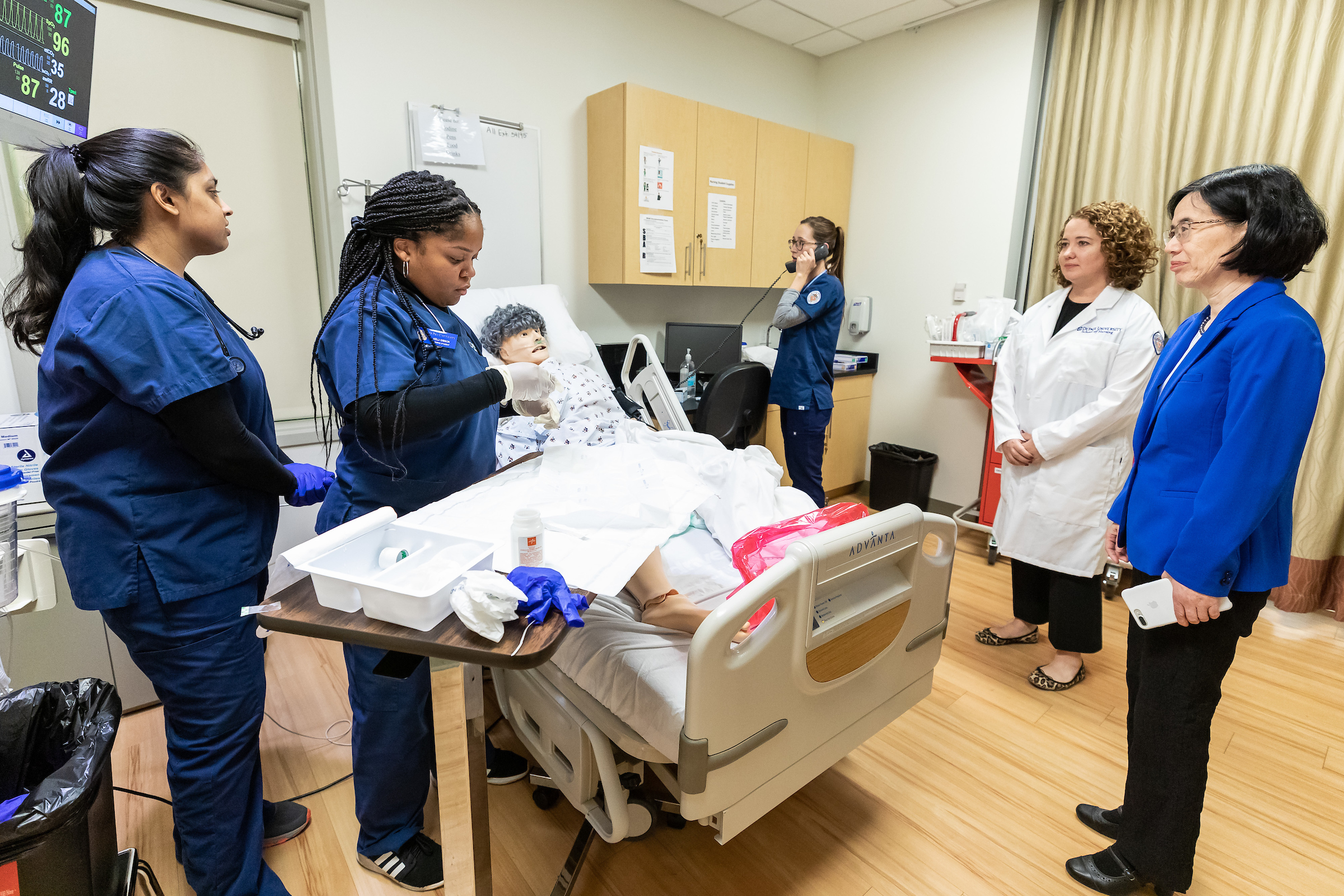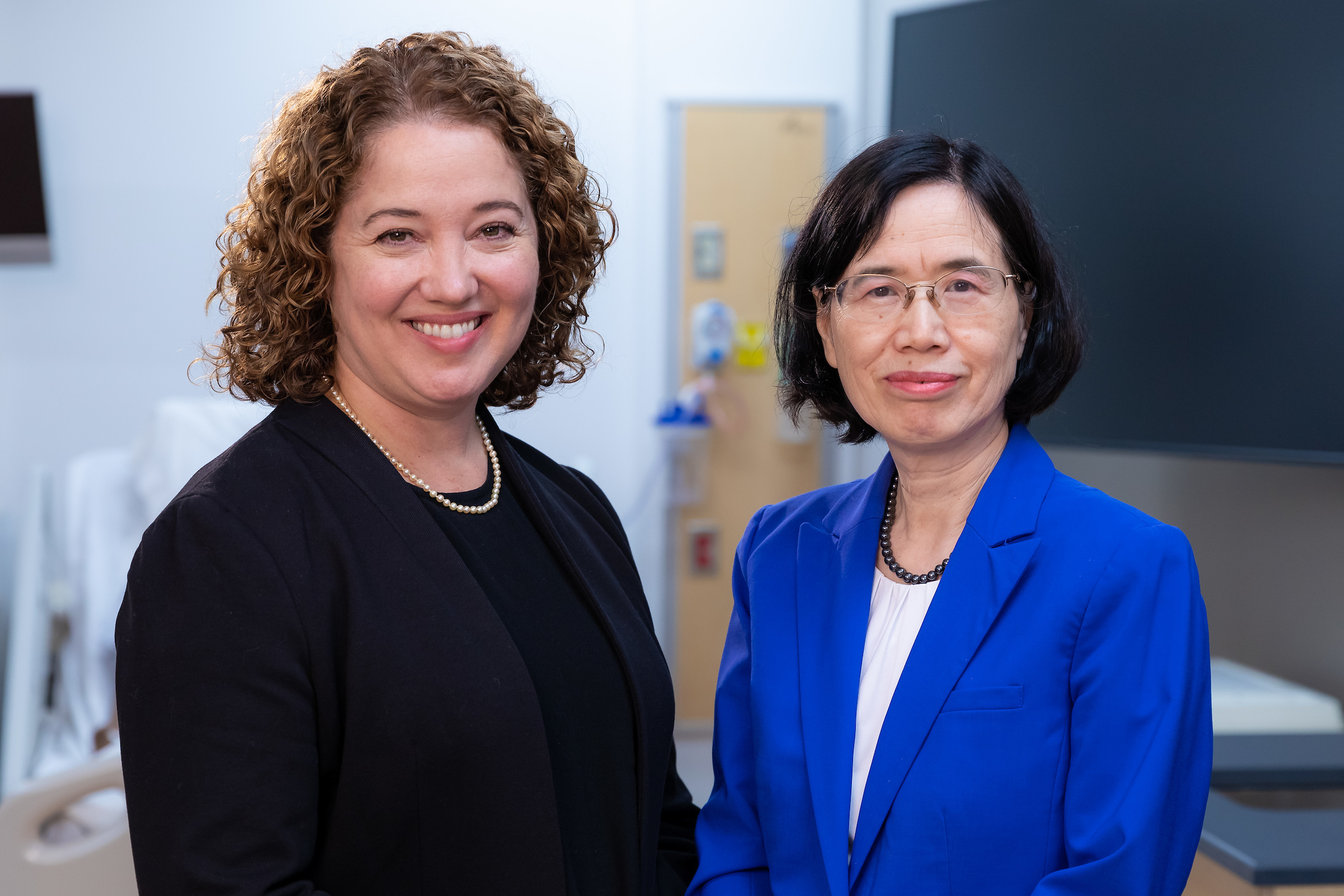 DePaul's School of Nursing is expanding nursing program, offering more onramps into the profession and preparing the next generation of nurses. (DePaul University/Jeff Carrion)
DePaul's School of Nursing is expanding nursing program, offering more onramps into the profession and preparing the next generation of nurses. (DePaul University/Jeff Carrion) When DePaul’s School of Nursing announced the relaunch of its
Bachelor of Science in Nursing program, the university received more than 1,000 applications for about 35 spots. These new Blue Demons and future nurses arrived on campus this fall to start their undergraduate education and to prepare for careers as trusted health-care providers.
This week, the School of Nursing also announced a legacy gift, which will
create $2 million in scholarships for pre-licensure nursing students.
In this Q&A, School of Nursing director
Suling Li and BSN program associate director
Stephanie Byrd discuss DePaul’s expanded nursing program offerings, increasing onramps into the profession and preparing the next generation of nurses.
 Stephanie Byrd is associate director of the BSN program at DePaul, and Suling Li leads the School of Nursing and director and chief nursing officer. (DePaul University/Jeff Carrion)Many students were eager to join the BSN program at DePaul. Why do you think so many people still feel called to study nursing, and why at DePaul?
Stephanie Byrd is associate director of the BSN program at DePaul, and Suling Li leads the School of Nursing and director and chief nursing officer. (DePaul University/Jeff Carrion)Many students were eager to join the BSN program at DePaul. Why do you think so many people still feel called to study nursing, and why at DePaul?
Stephanie Byrd: Most students pursue nursing because they really care about people and are interested in health care. Nursing does follow economic trends, but a core of students will choose nursing no matter what. Certainly, some students have expressed that they were inspired to join the profession because they saw the great need during the pandemic. Many others have been drawn to our Catholic identity and mission.
Nursing programs are competitive, and we’re seeing first-year students are ready to be admitted into a program and start on their path to nursing right away. A good number of applicants to this program were already working as nurse’s aides or certified nursing assistants, or they were taking health-related classes in high school. It’s a highly qualified cohort, with an average GPA of 3.5.
How does the BSN program build on the well-established graduate programs in the School of Nursing?
Suling Li: The BSN is the most common entry into nursing practice and is a wonderful pathway for individuals who do not already have a college degree. DePaul’s program is hitting the market at the right time to make a significant contribution to society. These students will graduate as RNs, ready to care for patients amid an ongoing nursing shortage.
What are a few of the ways DePaul’s faculty have paved the way for the return of the BSN?
Suling Li: The experience our faculty bring is a huge advantage for making this BSN program successful. We have more than 20 years of success in prelicensure nursing education. As part of our Master’s Entry to Nursing Practice pre-licensure program, we already have over 75 clinical partners currently in place. This is a testament to our faculty’s work making connections and showing their commitment to Chicagoland. DePaul’s College of Science and Health faculty will also give our nursing students strong foundations in chemistry, biology and other core subjects in the sciences.
Stephanie Byrd: It’s wonderful to be in the city of Chicago because students have access to so many diverse clinical experiences and populations—inpatient and outpatient, city and suburban. It will really allow them to tailor their clinical experiences to their interests.
What are some of the other paths to nursing available at DePaul?
Suling Li: DePaul is one of the few schools in Chicagoland that enables entry into nursing at both the BSN and master’s levels. DePaul offers an accelerated program for students majoring in health sciences: They can complete a bachelor’s degree in health science and a Master of Science in nursing within five years. In addition, DePaul offers nurse practitioner programs at the master’s and doctoral levels. Other specialized programs include nursing education and nursing administration tracks, preparing nurses to practice at a higher level. Our alliance with Rosalind Franklin University of Medicine and Science lays the groundwork for a team approach to patient care. We encourage students to talk to their advisors and to reach out if they are interested in pursuing a degree in nursing.
For more information, visit the
School of Nursing online.